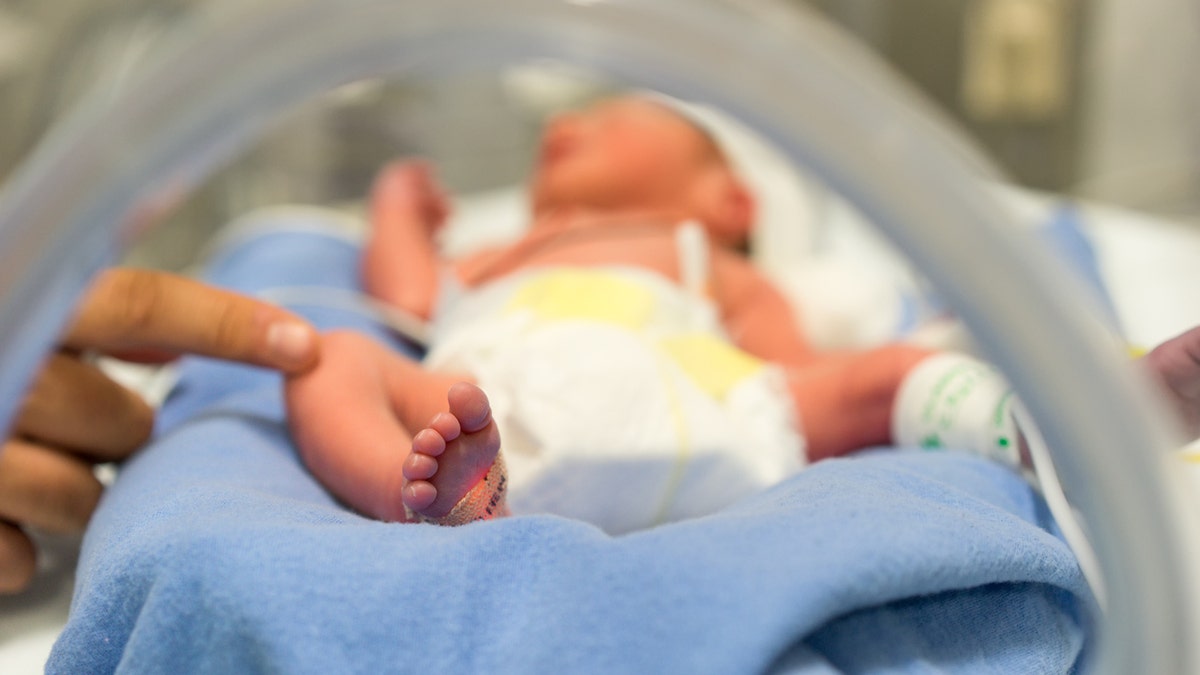
Photo of a premature baby in incubator. Focus is on his feet and toes. The doctor is touching him to check his reflexes. There are cables and tubes in the out-of-focus area. (iStock)
When Jillian and Christian MacNamara found out in early 2015 that they were having twin boys, they were thrilled. But at 24 weeks, an ultrasound showed that one twin, whom they named Frank, had a severe heart defect called hypoplastic left heart syndrome. A series of three open-heart surgeries offered a chance of keeping him alive, but there was no way to know how healthy or severely impaired he might be. Without treatment, he probably wouldn’t live long after birth.
After two weeks of agonizing, the MacNamaras decided against surgery. That led them into a sorrowful frontier of modern medicine: caring for babies who don’t have long to live.
One pioneer in the field is the MacNamaras’ doctor, Elvira Parravicini, a neonatologist at NewYork-Presbyterian Morgan Stanley Children’s Hospital. In 2015, she started a formal program there to care for families who decide to continue pregnancies despite grave prenatal diagnoses. The number of such programs, still few in the U.S., has risen in recent years, alongside improvements in diagnostic imaging and new options for prenatal testing.
Dr. Parravicini began taking on such cases about a decade ago. At a meeting discussing high-risk pregnancies, she volunteered to offer what in medicine is known as “comfort care” for a woman whose fetus had a severe heart defect and trisomy 18, a genetic condition in which individuals have three copies of chromosome 18 instead of the normal two. Many decide to terminate such pregnancies, but the woman wanted to be able to hold her baby.
The hospital didn’t have a protocol to follow. When the baby was born, Dr. Parravicini encouraged the mother and daughter to bond. The infant died at the hospital a few days later, wearing a butterfly-covered outfit that Dr. Parravicini had bought.
She soon became the go-to doctor for such cases. With the help of colleagues, nurses and social workers, she assembled a standard plan of care. Comfort-care cases came to average about a dozen a year, and parents began coming to the hospital from around the New York City area. In February 2015, the program won a grant to hire neonatal nurse Frances McCarthy as a full-time clinical coordinator.
When she first meets families, Dr. Parravicini tells them that most babies will die peacefully and, in her experience, without pain. She won’t predict how long a baby will live; she has often been surprised.
Dr. Parravicini encourages parents to hold their infants as much as possible. She and Ms. McCarthy try to attend each birth to take pictures for the family and collect mementos in a memory box that the program supplies.
